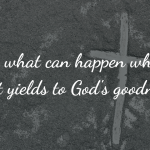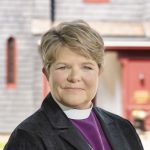Dear friends,
In this season of Lent, our worship reminds us of our mortality and our dependence upon God alone. As we confront the COVID-19 coronavirus, I pray that our response will reflect our faith and our intention to serve God and one another in love.
During this week’s House of Bishop’s meeting, we had an opportunity to learn about the COVID-19 coronavirus from a leading expert in infectious disease, Dr. John Clements. Dr. Clements is a retired Tulane University microbiology professor who now serves on the Public Health Subcommittee of the U.S. military’s Defense Health Board.
Dr. Clements stated that one of the greatest concerns for people who will be diagnosed with COVID-19 is access to proper medical care. Our hospitals and care facilities are not prepared for wide-spread infection. If we work together to slow the rate of infection, it will offer hospitals and care professionals an opportunity to respond to those most in need and save lives. Given that a preventative vaccine is not expected to be available for two or more years, slowing the spread of COVID-19 is our best response.
Jesus said, “There is no greater love than this, that a person lay down a life for a friend.” For some of us, that hug on Sunday morning from a beloved church friend is invaluable. And that very hug might also put you or that friend or someone else at risk for spreading contagion, something neither of you would ever intend.
Therefore, in keeping with our draft Diocesan Vision, Mission, and Rule of Life, and with the support of the Diocesan Board, I am issuing the following Pastoral Directive to all clergy serving in this diocese, and for each worshiping community. This directive is effective from today through June 1, 2020. It will be posted, along with resources for parish leaders, on the diocesan website at the following link: cnyepiscopal.org/faithful-response-coronavirus.
We will continue to review this directive in consultation with the Board and local health professionals, and will post updates at the above link.
- When celebrated, the peace is to be passed without physical contact.
- Intinction (the dipping of the Bread into the Wine) is not to be practiced in any form. Available scientific evidence is conclusive: intinction increases the potential for viral transmission.
- In our shared communal life, the sacraments are complete in themselves, so by receiving the bread, the wine is also received. Should no wine be offered from a common cup, a small chalice of wine may be consecrated, left on the altar and then poured out on sacred ground after the service.
- Lay Eucharistic Ministers will wipe the inside and outside of the chalice rim with a purificator between each communicant, then turn the chalice a quarter-turn.
- Despite the hospitality intended, grape juice is not to be used in place of wine due to the increased risk of viral transmission.
- Only metal chalices are to be used. If this is a hardship, please contact the diocesan office and we will assist you.
- Prior to entering worship, all members of the congregation will wash their hands for at least 20 seconds.
- Prior to receiving communion, each participant will apply hand sanitizer of at least 60% alcohol. If you cannot find hand sanitizer, please use rubbing alcohol of 70% or more. I am aware that hand sanitizer is out of stock in most locations and online. It remains true that hand washing with soap is the most effective deterrent to the spread of disease.
- Anyone who has a fever and/or cold-like symptoms is strongly urged to avoid public worship, meetings, and community gatherings.
There are also new practices to consider and many ways to support our “world being healed by love.”
- We can pray for those impacted;
- We can act by supporting Episcopal Relief and Development or other agencies who are working on relief efforts;
- We can work with local hospitals and care facilities to support caregivers;
- We can offer “free handwashing” to our community;
- We can speak with people who may differ from ourselves to learn of their experience in this time. Reports have been issued about people shunning those of particular ethnic groups, or avoiding certain restaurants based on cultural bias and fear. We are people who believe in the Way of Love and are seeking a world healed by love. This is a wonderful opportunity to explore new relationships in new ways such as joining virtual book clubs or being a support by phone;
- We can check with leaders of feeding ministries and other community programs about their plans and how our congregations might help. If our parishes have feeding ministries, we can consider stocking bar soap, hand sanitizer, toilet paper, and other hygiene supplies to help our neighbors;
- We can explore ways to cultivate online community and stay in touch with members and neighbors who cannot participate in worship and meetings; resources are available on the diocesan website for your consideration;
- We can work to avoid becoming infected ourselves by getting enough sleep, eating a healthy diet, exercising, and maintaining good hygiene practices.
God has not given us a spirit of fear, but of love and hope and a sound mind. Over the past four years we have been working together in the Learning Communities Initiative and various workshops to learn new ways of being church. We now have an opportunity to allow our love of God and love of neighbor to guide us into new ways of encountering Jesus. How might we be called to be community, to serve others beyond the doors of church, in ways we have not yet dared to dream? Let us dream new dreams and be at peace, and let us love one another in word and in deed.
Blessings of peace for the journey,

The Rt. Rev. Dr. DeDe Duncan-Probe
Bishop of Central New York


